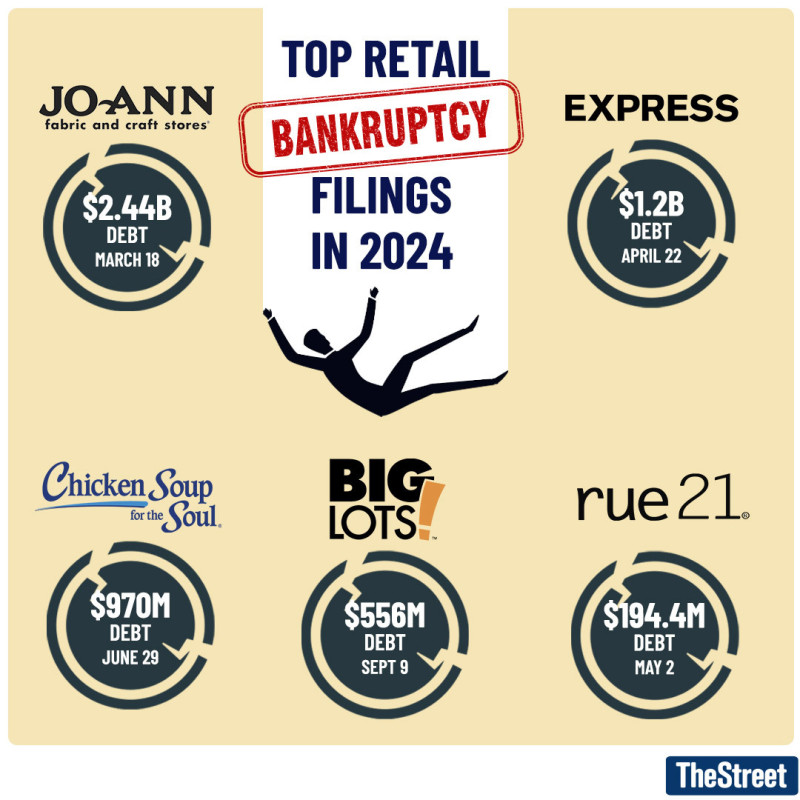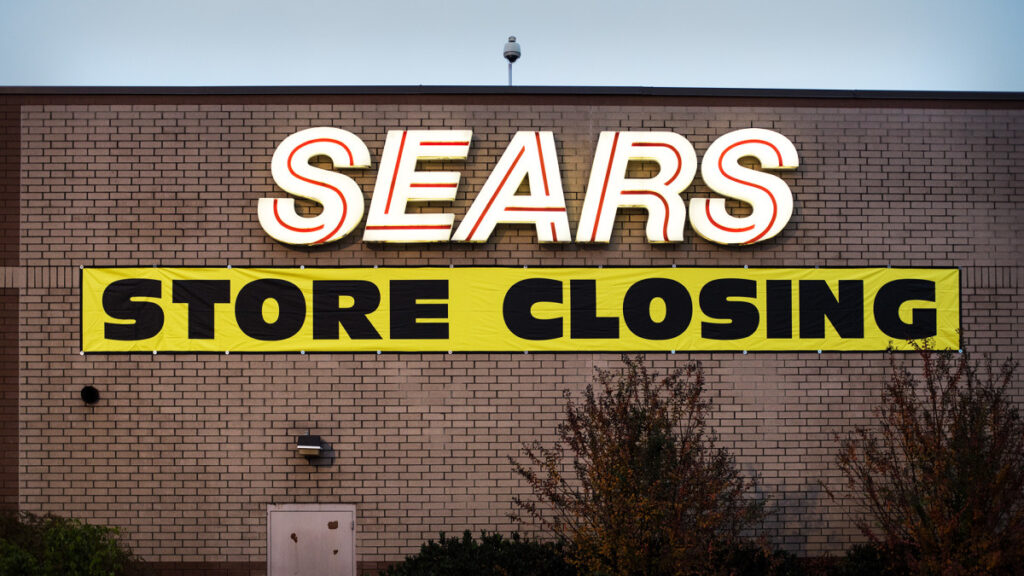The death of brick-and-mortar retail has continued in 2024 as several retailers have filed for Chapter 11 protection, while others are preparing to file for bankruptcy after the holiday season.
Major retail chains that have already filed for Chapter 11 bankruptcy this year include discount retailer Big Lots, which filed its petition on Sept. 9 and sold its assets to private equity firm Nexus Capital Management for $760 million, which included $2.5 million in cash, debt payoff, and assumed liabilities.
💸💰 Don’t miss the move: Subscribe to TheStreet’s free daily newsletter 💰💸
The debtor planned to close 550 of its 1,400 stores under the bankruptcy case.
Related: Embattled home goods retailer plans to file Chapter 11 bankruptcy
Another discount retailer 99 Cents Only filed for Chapter 11 bankruptcy on April 8, 2024, and later in May 2024 it filed for Chapter 7 bankruptcy to close down and liquidate all 371 stores in Arizona, California, Nevada, and Texas.
Home improvement retailer LL Flooring on Aug. 11 filed for Chapter 11 bankruptcy protection in the U.S. Bankruptcy Court for the District of Delaware in Wilmington seeking a sale of its assets, after suffering from broad headwinds in the housing, repair, and remodeling markets that occurred when the Covid-19 pandemic subsided, court papers said.
Party City might file for bankruptcy again
Giant party supply retailer Party City, which operates about 850 party supply and costume stores in the U.S., Canada, and Mexico, is contemplating a sale of its assets or a possible Chapter 11 filing for the second time, Bloomberg reported.
Party City reportedly is behind on rent for some of its stores, is running out of cash, and lagging sales are making it difficult for the company to make payments on its large debt load.
Home goods retailer The Container Store is also getting ready to file for Chapter 11 bankruptcy and hand control of the company to its secured lenders, people with knowledge of the plans told Bloomberg after the retail chain had difficulty obtaining financing and was delisted by the New York Stock Exchange.
Shutterstock
Sears closes one of its last remaining stores
And now former giant department store chain Sears closed another of its few remaining locations on Dec. 15 when it shuttered its Tukwila, Wash., store in the Westfield Southcenter, KING-TV reported. The store was the last Sears open in Washington.
Related: Another huge retail chain prepares to file for bankruptcy
The closing of the Tukwila store leaves eight remaining stores in the dying Sears department store chain that are located in Burbank, Concord, and Whittier, Calif.; Miami and Orlando, Fla.; Braintree, Mass.; El Paso, Texas; and San Juan, Puerto Rico.
More bankruptcy stories:
- Another popular pizza chain files for Chapter 11 bankruptcy
- Popular vodka brand files for Chapter 11 bankruptcy
- Auto parts retailer dumps hundreds of stores, no bankruptcy yet
The 131-year-old department store chain has been fading away in recent years as it has been slowly closing stores.
In 2024, it started the year with 12 stores scattered around the country and closed its Jersey City, N.J., store in March. Next, Sears closed its Stockton, Calif. store in August, followed by its Union Gap, Wash., location in September.

TheStreet
Sears was purchased by Kmart Holding in an $11 billion, 3,500-store merger in 2005, led by Kmart’s chairman Eddie Lampert. Since that huge transaction, the Sears/Kmart partnership has suffered the retail dread of battling Walmart, Target, Costco, Amazon, e-commerce, and the death brick-and-mortar shopping centers and malls.
The surviving corporation Sears Holdings on Oct. 15, 2018, filed for Chapter 11 protection with plans to close stores, sell core locations, and reorganize. The company had less than 700 Sears and Kmart locations at the time and planned to close about 260 locations.
Lampert emerged as the buyer of the huge retail chains in a $5.2 billion deal in January 2019, which consisted of about 223 Sears and 202 Kmart stores.
Practically all of those stores, except for the remaining eight. would disappear in the six years since the sale.
Related: The 10 best investing books (according to stock market pros)
